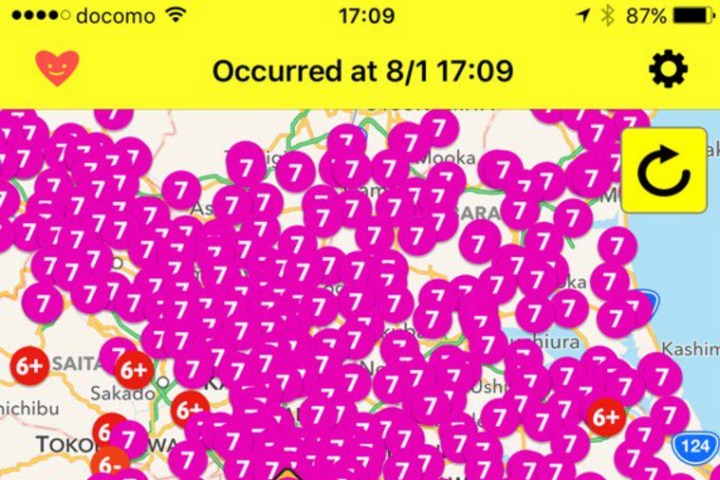
So on Monday, when smartphones across the nation’s capital began beeping in unison at a little after 5 p.m., warning that a 9.1-magnitude quake (7 on the Japanese scale) was seconds from striking the city, it’s not hard to imagine the sense of fear that must have momentarily gripped many of its citizens.
The warning was, however, sent in error.
maybe this not just happen… or I’m already dead…#tokyo #earthquake pic.twitter.com/4oF6NrFMaP
— d.stry studio (@dstry) August 1, 2016
Japan’s Meteorological Agency, realizing the mistake, canceled the alert within seconds, but by that time at least one popular quake-warning app, Yurekuru, had forwarded it to millions of its users.
Tokyo resident Giovanni Antignano was in a work meeting with three others when his phone started sounding the alert.
“At first I was surprised to hear it, but when I saw the expected intensity of the quake I felt quite scared,” the creative director told Digital Trends.
In the seconds that followed, Antignano said he and his co-workers braced themselves, checking fixtures in the room to see when the shaking would begin.
The Italian, who’s been living in Tokyo for the last five years, said as far as he knows it’s the first time the app has sent out an alert by mistake.
The Meteorological Agency’s system is designed to detect the primary wave of a tremor, which can occur up to 90 seconds before the really serious shaking starts. Sending out a warning can give residents time to take cover, or, as Antignano said, to prepare yourself mentally for what’s about to happen.
While not confirmed, the agency suggested the erroneous data sent to its control room on Monday may have been the result of a lightning strike on one of its many instruments that monitor movement beneath the ground.
Oh hang on, this has happened before…
It’s not the first time for a high-profile incident of this nature to have hit Japan. In August 2013, phones across much of the country started beeping, erroneously warning residents of an imminent magnitude-7.8 quake. Again, nothing happened, with the Meteorological Agency blaming “electronic noise” as the cause of the mishap.
Commenting on the smartphone warning feature at the time, and how more often than not the shaking turned out to be minor, one Tokyo resident told Digital Trends that in most cases the alert’s “sound of impending doom got me sweating more than the actual shaking.”


